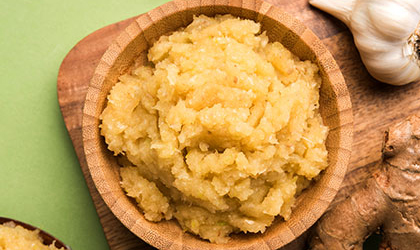
Nearly all the positive clinical research into turmeric have been carried out without piperine, and independent studies have shown that after several days of taking turmeric on its own there is little difference in absorption compared to the version with piperine. However, as new studies transpire, the evidence for combining turmeric with piperine grows.
What is black pepper extract / piperine?
Piperine is extracted from black peppercorns and is believed to be behind the pungency of this spice. Piperine has been shown to inhibit an enzyme in the body that breaks down curcumins in the gut and liver, allowing for higher concentrations of the turmeric compounds to remain in the blood. Therefore, it is important to note that while piperine does not increase absorption of curcumins, it does support their retention during metabolism.
What else should I consider?
To be useful the compounds in turmeric need to be absorbed from the gut. As turmeric is fat soluble, oil has been shown to increase its absorption. So, we recommend taking a turmeric tablet away from food but with some oil. If you are taking an oil supplement such as fish oil, this would suffice, otherwise you could use a small amount (1/4-1/2 teaspoon) of a culinary oil such as olive or coconut oil.
What is turmeric?
Turmeric or curcuma longa is a plant native to India and Southeast Asia, and is a member of the ginger family, you’ll see a similarity in the appearance of their rhizomes. Turmeric, however, is a brilliant orange/yellow colour which is why it is often coined the ‘golden spice’. Turmeric is dried and ground into a powder for culinary use, but the root/rhizome can be used fresh in cooking, too.
One of the constituents of turmeric is curcumin, which is responsible for the colourful hue, and has been identified as the ‘active’ compound in the herb. Curcumin is a natural phenol, part of the curcuminoids group and is more concentrated in the root extract than in the powder. In fact, powdered turmeric contains around 3mg of curcuminoids, whereas the root extract may contain up to 400mg. As a result, most clinical studies have been based on turmeric root extract.
What is turmeric used for?
Aside from the culinary uses for turmeric it is has been part of Ayurvedic Medicine for centuries and is now widely popular as a food supplement. Turmeric is often formulated in combination products to support cognition or digestive health.
What should I choose for best absorption?
Our unique formula Curcusorb™ is one of the UK's strongest and most advanced turmeric formulas. It contains a new and improved form of curcumin, with studies suggesting it may increase absorption by up to 46 times. This sophisticated turmeric product uses advanced formulation methods to make the curcuminoids more soluble and, therefore, easier to absorb.


Find out more about this product by clicking here.
Final thought
Based on compelling studies, our Curcusorb™ formula is our qualified Nutritionist’s top choice for absorption and beats combination products in the market.
We have developed a range of turmeric supplements to suit all needs, here’s a brief outline of those to help you decide:
Turmeric Fast Release 10,000mg – suitable for long-term use/maintenance dose
Turmeric 20,000mg – suitable for for 50+ adults / short-term use
Curcusorb™ - enhanced absorption formula
Curcumem™ – cognition support formula
For our full range of turmeric products click here.
Still not sure? For more advice on how to choose the right turmeric supplement contact our Nutrition Advice Team by clicking here.
Further reading… why not browse our Blog articles to find out more about turmeric...
You Might Also Like

Olivia
Olivia Salter has always been an avid health nut. After graduating from the University of Bristol, she began working for a nutritional consultancy where she discovered her passion for all things wellness-related. There, she executed much of the company’s content marketing strategy and found her niche in health writing, publishing articles in Women’s Health, Mind Body Green, Thrive and Psychologies.
View More



